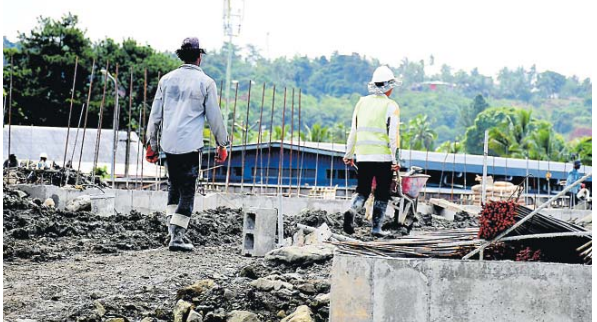Many people have had their say about the national budget. Political actors on all sides have defended their positions with passion, each interpreting the numbers to suit their narrative.
Having been directly involved in multiple national budgets — both in gathering and analysing public views and running public relations campaigns — I understand just how tough and complex the entire process is. Believe me, there are a lot of sleepless nights. In my view, one area this budget still struggles with is public communication.
I think there is a broad consensus that this remains a general weakness of the Coalition Government.
As a responsible citizen, I have, of course, made my submissions to the budget process — both individually and on behalf of several organisations that I lead.
But let’s step back for a moment and examine this budget from a neutral perspective. At its core, what makes a good budget?
A good budget balances the needs of today with the challenges of tomorrow.
It provides immediate relief to those struggling, invests in educating future generations of Fijians, and ensures that infrastructure like roads, water, and electricity are maintained and improved. But beyond that, a good budget also protects the country’s future — five, ten, even twenty years from now — by laying a foundation for resilience and growth.
The real challenge is finding that balance
When we look at this budget, we see those elements present throughout. Take, for instance, the VAT reduction from 15 per cent to 12.5 per cent, alongside the continued zero-rating of essential food and household items.
This is immediate relief. It means ordinary Fijian families will keep more money in their pockets at a time when global food and fuel prices remain volatile.
At the same time, the Government has allocated significant funds to roads, water projects, and school upgrades — these are long-term investments that will serve not just us today, but our children tomorrow.
Let’s also address the elephant in the room
Much has been made of the size of the deficit in this year’s budget, and understandably, it has caused some alarm. But it is important to remember that a deficit, by itself, is not a sign of failure.
The global economy today runs on the principle of borrowing to invest — whether it’s countries building roads and power grids or individuals taking home loans.
Just as a person borrows to buy a house that increases in value over time, governments borrow to fund infrastructure, education, and health systems that make the whole economy stronger and more productive.
If the spending is directed toward areas that raise the future earning potential of the country, then the deficit is not a burden — it is an investment in national growth.
Education funding in this budget is at record levels. More than 24,000 students will benefit from government scholarships and increased living allowances, ensuring that financial barriers do not limit the next generation of engineers, doctors, teachers, and innovators.
In health, allocations for kidney dialysis and HIV prevention show that the Government recognises the urgent human challenges facing the nation and is willing to act decisively.
Additional funding for the police to combat drug trafficking and related crimes is also something that was badly needed.
It is great to see agriculture and food security also receive a boost, with funds allocated to improving irrigation, farming technology, and livestock breeding, strengthening our national food supply, making Fiji less dependent on expensive imports and global markets.
It is important to keep in mind that Deputy Prime Minister and Minister of Finance Hon. Biman Prasad and the Coalition Government are managing the effects of global crises far beyond Fiji’s borders.
Wars in Europe and the Middle East, ongoing supply chain shocks, and rising global inflation all create immense pressure on small economies like ours.
Added to this is the ongoing challenge of skilled worker migration, where many of our best-trained citizens leave for opportunities abroad. Balancing all these factors while keeping the economy stable is no easy task.
Managing an economy like ours, which is dependent on other countries for trade, is not easy, and we must go beyond politics to support our leaders for the betterment of all our people instead of using these hard times to mislead people for political gains.
With the unprecedented rapid growth of technology, one area the next budget could meaningfully address is how Fiji prepares its people and businesses to thrive in the digital economy
This year’s budget reminds us that building a nation is not about winning headlines but about setting a course. It is a steady hand in turbulent times, and that, in itself, is worthy of recognition.
Until next week, take care and be safe.
- ARNOLD CHANEL is an investor and business executive with years of tech expertise. He can be contacted on ceo@vanguardtech.pro. The views expressed in this article are his and not of this newspaper



